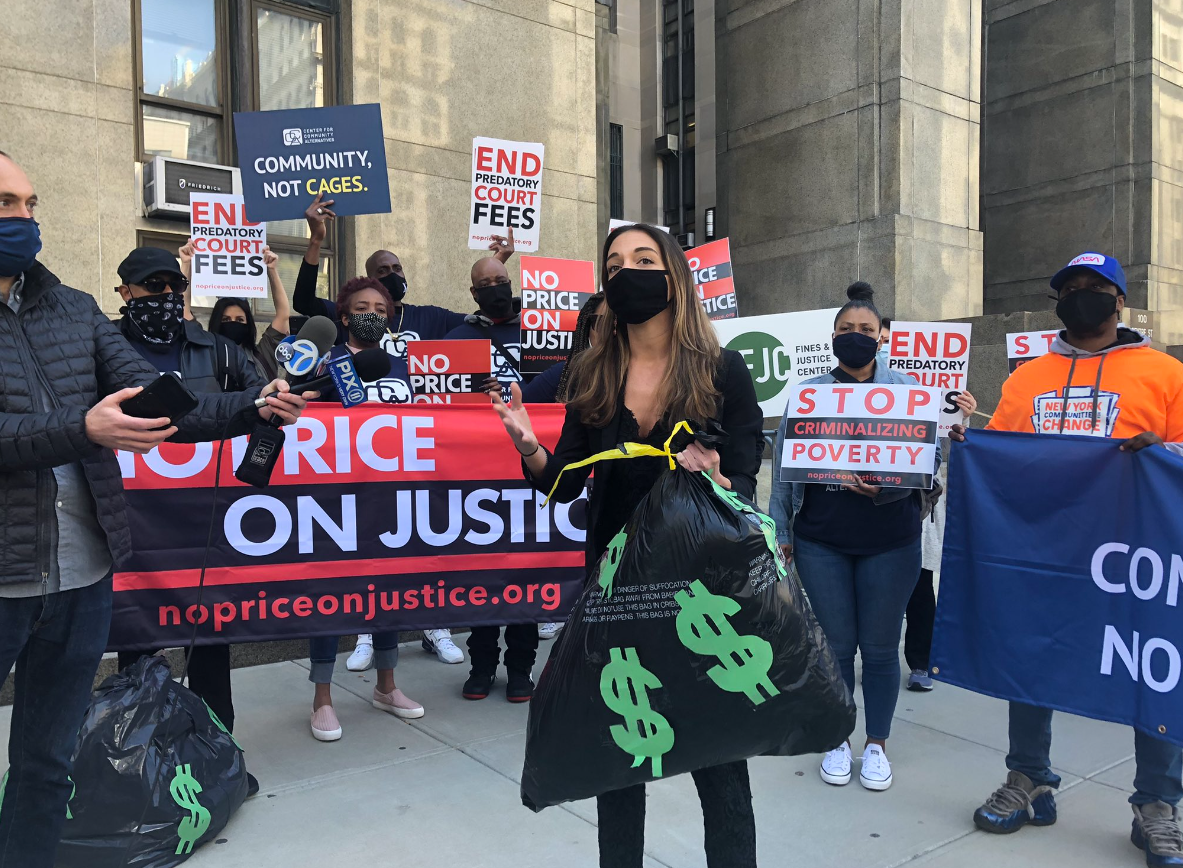In the final hours of 2020, Gov. Cuomo signed an amended version of the Driver’s License Suspension Reform Act, ending the practice of suspending a person’s driver’s license when they cannot afford to pay a traffic ticket. Hundreds of thousands of New Yorkers who have lost their ability to legally drive — simply because they can’t afford to pay a traffic ticket — can now escape a vicious cycle of poverty and punishment.
New York issued nearly 1.7 million driver’s license suspensions for non-payment of traffic fines and non-appearance at traffic hearings during a recent 28-month period. Because Black and Latinx people are disproportionately stopped, ticketed, charged and convicted for traffic violations, this especially burdens their families and communities.
Losing a driver’s license is no small thing. Every day, millions of New Yorkers are forced to make an impossible choice: stop driving — and lose access to work and basic necessities — or keep driving, risking more unaffordable fines and fees, or even arrest and jail time. Either way, it only exacerbates an underlying problem: financial insecurity.
New York joins 11 other U.S. states that have passed similar laws over the past three years — including Michigan, where Gov. Whitmer signed a similar reform into law last week.
Although New York’s new law is a significant step towards reducing the criminalization of poverty, it’s only a first step — especially because Gov. Cuomo made changes to the law before signing it, which significantly limits the number of people who will benefit from the law. The bill that had initially passed the legislature would have also ended suspensions for missing a traffic hearing. But before signing the bill, Gov. Cuomo removed this provision.
Missed court dates also stem from poverty. People who can afford to pay a ticket can do so without appearing in traffic court. People who can’t afford to pay a traffic ticket, however, are required to go to court but are often unable to take time off from work or child care to do so.
New York’s new law also makes monthly payment plans available at 2% of a person’s monthly income or $25/month, whichever is greater. The bill that was overwhelmingly approved by the state legislature set the minimum amount at $10, yet Gov. Cuomo insisted on substantially increasing the monthly payment. This $25 minimum monthly payment is out of reach for low-income people who are already struggling to feed their families and meet their basic needs.
Driver’s license suspensions are only one of many ways that New York’s fines and fees punish people who don’t have money to spare.
Since the 1980s, New York has increasingly relied on police, prosecutors, and judges to fill budget gaps by imposing more fines and fees. Following the 2008 Recession, the trend accelerated.
A recent report, New York’s Ferguson Problem, published by the No Price on Justice coalition, documents how this misguided approach exacerbates poverty, fuels policing-for-profit, and endangers Black and brown New Yorkers.
When governments use predatory fines and fees to raise money, the result is a hidden, regressive tax on those who can least afford it. Harsh policing — driven by New York’s dependence on fines and fees money — does not lead to greater public safety. Instead, this system of taxation-by-citation extracts resources from people living in poverty, while exposing Black and brown New Yorkers to more encounters with police.
New York is wasting money to chase money that doesn’t exist. Fines and fees are an inefficient source of government revenue, and collection practices are costly.
New York fails to keep records on money it assesses, collects, and distributes from fines and fees, despite the law requiring them to do so. No data means no accountability. Ignoring mandates to track fines and fees revenue isn’t only bad fiscal policy — it is bad government.
Last Fall, New York legislators introduced legislation that would end state-imposed court fees, parole and probation fees, mandatory minimum fines, commissary garnishment for court debt, and arrests and incarceration for unpaid fines and fees. Another bill would require state prisons to provide free phone calls for incarcerated people, who currently pay exorbitant costs to get in touch with their families. Efforts to enact these reforms will ramp up in New York’s 2021 legislative session.
While the Driver’s License Suspension Reform Act is an important victory, it leaves behind many New Yorkers by continuing to allow suspensions for missed court dates and requiring minimum monthly payments that low-income drivers can’t afford.
New York’s predatory fines and fees will continue to trap residents in inescapable debt and endanger Black and brown lives. No New Yorker should be at risk of losing their job, their license, or their freedom simply because they can’t afford a fine. In a fair society, there can be no price on justice.
Katie Adamides is the New York State Director of the Fines and Fees Justice Center.
This piece first appeared in the New York Daily News.
